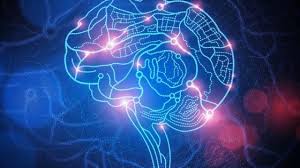Source: healthimaging.com
Deep learning can segment white brain matter in PET/CT scans to help clinicians diagnose a variety of neurodegenerative disorders, according to a new study.
A team of South Korean researchers created a type of artificial intelligence known as a generative adversarial network using an existing model called pix2pix, they said Feb. 10 in the Journal of Digital Imaging. And when applied to 18F-FDG PET/CT and MRI scan data from hundreds of patients, it accurately segmented and assessed the volume of white matter in the brain.
Quantifying these changes may help radiologists identify and diagnose a number of different brain diseases, first author Kyeong Taek Oh, with Yonsei University College of Medicine, and colleagues wrote.
“The volume change of white matter has been reported in aging, psychosis and multiple sclerosis. Also, white matter changes were observed in patients with Alzheimer’s disease with extensive gray matter atrophy,” according to Taek et al.
“It (white matter volume change) provides the severity, extent, and location of disease which are important clues for the identification of subtypes, staging and prognostication of neurodegenerative diseases,” the authors added.
To reach their conclusions, the researchers included data from 192 patients who had both PET/CT and MRI scans performed. They used 154 individuals’ data for training, 19 for validation and the remainder for testing their platform. Five experts graded the network-produced images using a segmentation quality score.
Their adversarial network performed well, with 78% of segmentation results notching “adequate” scores.
With this tool, Taek and colleagues wrote, clinicians could not only diagnose the brain diseases mentioned earlier, but more importantly, identify white matter “hypersensitivities,” which have been associated with an increased risk for certain dementias as well as impaired cognitive abilities.
“The segmentation results of the proposed method showed excellent performance mimicking the ground truth images of MRI compared with several commonly used deep learning methods,” the group concluded. “Further studies are needed to elucidate the clinical implications of FDG PET/CT based white matter segmentation in brain research.”
